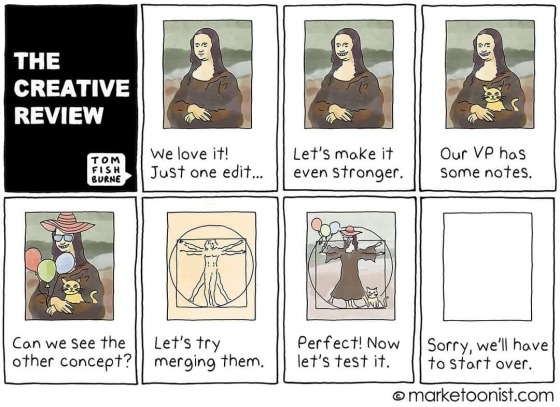
2025 August❮❮prevnext❯❯
2025.08.01
Trump fires labor statistics chief hours after data showed jobs growth slowed
2025.08.02
4 star:
* Whatcha Say (Jason Derulo)
* Say No Go (De La Soul)
3 star:
* The Living Years (Glee Cast Version) (Glee Cast)
* Top Going Down, Bottom Going Up (Nathan Bartell)
* DJ KASH. ANXIETY VS NEVER LET U DOWN. (MASH-UP) (DJ KASH 685)
* Still Not a Player (Big Punisher)
* Feet Don't Fail Me Now (Joy Crookes)
* The Aggressive Bee (MC Mr. Napkins)
* Juke (Bobby Rush & Miles Caton)
* Last Time (I Seen the Sun) (Alice Smith & Miles Caton)
* Are You Gonna Be My Girl (Mallory Merk)
* HOT TO GO! (Chappell Roan)
2025.08.03
2025.08.04
A while back Lynette told me I wasn't funny - a damning accusation for a man, right up there with being a "bad driver" or "not good at sex". Now there's nothing more hopeless than trying to convince someone else about what's funny, but when I pointed out I made her laugh pretty often she recanted, though still held that there's a certain kind of funny that I am not.
Lately we've been poking at what that is. When I try to be funny, I'll often A. making some kind of incongruity or weird connection (and puns are kind of in this space, banking too much on a phonetic connection) or B. I'll lapse into a very temporary character with appropriate voice, like for a quick bit of mock anger or dumbness or what not.
And Lynette points out that I don't have a lot of "witty banter" mojo. (Or game in general which is a different story... or is it?) Like I think I'm witty, or at least quick-witted...
So I'm trying to play with this idea that there's this other kind of "wittiness", one that is more reliant on a fixed, judgemental persona... a solid platform for snarky cut downs, for instance. Or a confident base for expressing desire, and confidence in having goods on offer - this is where "game" comes from, I'd say.
But it makes sense to me that I'd be bad at humor (or "game") based on judginess - my whole shtick is not judging things (I shy away from pronouncements that might not be objectively true, my whole life is a "Only God Can Jugde" tattoo but Judge is spelled wrong) I mean in a way the "incongruity" humor is a form of judginess but it has an aspect of letting the listener draw their own conclusion.
Also I'm trying to figure out why I LOVE hopping into a quick voice, but other types of persona changes - flirty roleplay, halloween costumes, LARPing - don't appeal to me at all. Maybe I lack the courage of my convictions, this sense that taking on a longer term falsehood of a role has to be done perfectly, or not at all? But it seems false to me, and I quickly lapse into my affable goofball non-judgey true self.
2025.08.05
Fuck this guy. The benefits with mRNA - no live virus needed, faster and more targeted manufacturing, strong immune response - are real. This is fearmongering politicization of medicine.

2025.08.06

2025.08.07
because of a "coding error" some bits of the constitution posted on the Library of Congress website were removed.
You can see what was dropped:
Interestingly it includes "And no Person holding any Office of Profit or Trust under them, shall, without the Consent of the Congress, accept of any present, Emolument, Office, or Title, of any kind whatever, from any King, Prince, or foreign State." (you know like a present or Emolument like a 747, say...)
Also "The Privilege of the Writ of Habeas Corpus shall not be suspended", which given we now have masked ICE police soliders snatching people off the street and then scurrying them off to more friendly federal judge area before due process can happen, sucks.
Orwell having a field day.

2025.08.08
BUT, I did finish a great book that would have been perfect fodder for my lapsed Science + Spiritualiuty Reading Group: Yuval Noah Harari's "Nexus: A Brief History of Information Networks from the Stone Age to AI"
He really works to take a LOOONG historical view of how control of societies, from prehistory through small kingdoms and up through the 20th century's (and today's) totalitarian state is about information, and how interlinked that is with power. And AI is changing that equation in vertigo-inducing new ways, since now an information carrier isn't just an artifact, it can have its own agency.
Americans grow up with the idea that questions lead to answers. But Soviet citizens grew up with the idea that questions lead to trouble.
Recall that the Bible was born as a recommendation list. By recommending Christians to read the misogynist 1 Timothy instead of the more tolerant Acts of Paul and Thecla, Athanasius and other church fathers changed the course of history.
Ethnic-cleansing campaigns are never the fault of just one party. There is plenty of blame to share between plenty of responsible parties. It should be clear that hatred toward the Rohingya predated Facebook's entry to Myanmar and that the greatest share of blame for the 2016–17 atrocities lies on the shoulders of humans like Wirathu and the Myanmar military chiefs, as well as the ARSA leaders who sparked that round of violence. Some responsibility also belongs to the Facebook engineers and executives who coded the algorithms, gave them too much power, and failed to moderate them. But crucially, the algorithms themselves are also to blame. By trial and error, they learned that outrage creates engagement, and without any explicit order from above they decided to promote outrage.
If power depends on how many members cooperate with you, how well you understand law and finance, and how capable you are of inventing new laws and new kinds of financial devices, then computers are poised to amass far more power than humans.
Even without creating "fake intimacy," mastery of language would give computers an immense influence on our opinions and worldview. People may come to use a single computer adviser as a one-stop oracle. Why bother searching and processing information by myself when I can just ask the oracle? This could put out of business not only search engines but also much of the news industry and advertisement industry. Why read a newspaper when I can just ask my oracle what's new? And what's the purpose of advertisements when I can just ask the oracle what to buy?
[...]
The problem goes even deeper. The principles that "the customer is always right" and that "the voters know best" presuppose that customers, voters, and politicians know what is happening around them. They presuppose that customers who choose to use TikTok and Instagram comprehend the full consequences of this choice, and that voters and politicians who are responsible for regulating Apple and Huawei fully understand the business models and activities of these corporations. They presuppose that people know the ins and outs of the new information network and give it their blessing.
[...]
First, it is much easier for computers to create and change financial devices than physical objects, because modern financial devices are made entirely of information. Currencies, stocks, and bonds were once physical objects made of gold and paper, but they have already become digital entities existing mostly in digital databases. Second, these digital entities have enormous impact on the social and political world. What might happen to democracies--or to dictatorships, for that matter--if humans are no longer able to understand how the financial system functions?
I naively used to believe that social media could elevate human consciousness and spread the perspective of common humanity through interconnected pre-frontal cortexes in billions of human beings. What I realize is that the social media companies are not incentivized to interconnect pre-frontal cortexes. Social media companies are incentivized to create interconnected limbic systems--which is much more dangerous for humanity.
In history, many if not most conflicts concern the definition of identities. Everybody accepts that murder is wrong, but thinks that only killing members of the in-group qualifies as "murder," whereas killing someone from an out-group is not. But the in-groups and out-groups are intersubjective entities, whose definition usually depends on some mythology.
The danger of utilitarianism is that if you have a strong enough belief in a future utopia, it can become an open license to inflict terrible suffering in the present.
What about priests? How would Orthodox Jews or Christians feel about letting a robot officiate their wedding ceremony? In traditional Jewish or Christian weddings, the tasks of the rabbi or priest can be easily automated. The only thing the robot needs to do is repeat a predetermined and unchanging set of texts and gestures, print out a certificate, and update some central database. Technically, it is far easier for a robot to conduct a wedding ceremony than to drive a car. Yet many assume that human drivers should be worried about their job, while the work of human priests is safe, because what the faithful want from priests is a relationship with another conscious entity rather than just a mechanical repetition of certain words and movements. Allegedly, only an entity that can feel pain and love can also connect us to the divine.
Looking at the complex system of human society, progressives cried, "It's such a mess, but we know how to fix it. Let us try." Conservatives objected, saying, "It's a mess, but it still functions. Leave it alone. If you try to fix it, you'll only make things worse."
Yet in the 2010s and early 2020s, conservative parties in numerous democracies have been hijacked by unconservative leaders such as Donald Trump and have been transformed into radical revolutionary parties. Instead of doing their best to conserve existing institutions and traditions, the new brand of conservative parties like the U.S. Republican Party is highly suspicious of them. For example, they reject the traditional respect owed to scientists, civil servants, and other serving elites, and view them instead with contempt. They similarly attack fundamental democratic institutions and traditions such as elections, refusing to concede defeat and to transfer power graciously. Instead of a Burkean program of conservation, the Trumpian program talks more of destroying existing institutions and revolutionizing society.
It is telling that, as of 2024, Qatar's much bigger neighbors, and the world's hegemonic powers, are letting the tiny Gulf state hold on to its fabulous riches. Many people describe the international system as a jungle. If so, it is a jungle in which tigers allow fat chickens to live in relative safety.
Kevin Kelly, the founding editor of Wired magazine, recounted how in 2002 he attended a small party at Google and struck up a conversation with Larry Page. "Larry, I still don't get it. There are so many search companies. Web search, for free? Where does that get you?" Page explained that Google wasn't focused on search at all. "We're really making an AI," he said.Having lots of data makes it easier to create an AI. And AI can turn lots of data into lots of power.
The good news is that if we eschew complacency and despair, we are capable of creating balanced information networks that will keep their own power in check. Doing so is not a matter of inventing another miracle technology or landing upon some brilliant idea that has somehow escaped all previous generations. Rather, to create wiser networks, we must abandon both the naive and the populist views of information, put aside our fantasies of infallibility, and commit ourselves to the hard and rather mundane work of building institutions with strong self-correcting mechanisms. That is perhaps the most important takeaway this book has to offer.
2025.08.09
But like... REALLY leaning into it. This is the menu, almost all things she made more or less from scratch (everything was out all at once, picnic style, I just sorted it into categories so it wasn't quite so overwhelming.
===
DRINKS
Cucumber-watermelon, mint-lime agua fresca
Aperol spritzes w candies oranges
SALAD/SOUP STARTERS
Summer gazpacho with heirloom tomatoes and cantaloupe - topped with crispy sourdough croutons and crumbled chicken skin
Shrimp, mango and peppadew salad with a honey, lime sriracha dressing
Summer corn, peach and basil farro salad w roasted jalapeno, toasted almonds and burrata
DISHES
Tarragon and chive infused lobster and crab hawaiian rolls
Buttermilk fried chicken
MISC/SIDES
Charcuterie platter: Eggplant caponata, homemade hummus with veggies, mousse pate with cornichons, prosciutto, assorted cheese, marcona almonds, fresh berries
French bread and butter
SWEETS/DESERTS
Honey, tajin, lime watermelon salad
Caramel pot de cremes with creme fraiche and salted caramel shards
Yuzu-lemon Posset with shortbread crumble
Caneles
===
There were other finely set tables, but none seemed to have this array of food... one woman from Osaka asked to take a picture, so Lynette got to practice her Japanese and also send her off with some lobster roll.
(Matt Julie and Joe came along so this was all for 5 folks)
I learned a few things:
* First time to Tanglewood but I quickly realized Blossom near Cleveland is VERRRRY closely modeled on it.
* Is there anything more New England Boujee than Tanglewood calling its magnificent ampitheatetre-with-a-roof a "shed"?
* I do appreciate the Cleveland Symphony is usually slotted just a bit above Boston.
* If you have go to picnic, get some kind of funny light thing going so you can find your way back to your place in the dark if you end up having to hit the restroom (we had a headlamp w/ a darkroomish red light mode that did the job.)
The next day we hit the Norman Rockwell museum and Daniel Chester French's (the guy who did the Lincoln Memorial statue) estate Chesterwood. Both had stirring notes about what the USA should be aspiring to.
Open Photo Gallery
2025.08.10
You are not compelled to form any opinion about this matter before you, nor to disturb your peace of mind at all. Things in themselves have no power to extort a verdict from you.
2025.08.11
2025.08.12
It's interesting because, programming wise, that's a pretty complicated thing to support. I think they are quietly taking the raw/base64 data, quickly uploading it, getting a file reference, and then putting a tag with the image in the WYSIWYG content.
I have to put it on my Startling Technology list - stuff that really impressed me when it came out, like Google Maps slidey tiles, youtube letting anyone upload video, ChatGPT+Dall-E... not quite as exciting as those but still.)
2025.08.13
I've got an idea for a story: Gus and Ethel live on Long Island, on the North Shore. He works sixteen hours a day writing fiction. Ethel never goes out, never does anything except fix Gus sandwiches, and in the end she becomes a nympho-lesbo-killer-whore. Here's your sandwich.Thought of this after Lynette brought me some baked kale chips she made
2025.08.14

2025.08.15
"These intuitions don't even begin to resemble reality." According to Warwick Cairns, the author of How to Live Dangerously, kidnapping in the United States is so rare that a child would have to be outside unsupervised for, on average, 750,000 years before being snatched by a stranger. Parents know their neighborhoods best, of course, and should assess them carefully. But the tendency to overestimate risk comes with its own danger. Without real-world freedom, children don't get the chance to develop competence, confidence, and the ability to solve everyday problems. Indeed, independence and unsupervised play are associated with positive mental-health outcomes.we live in such a culture of fear! like it's just this liability mindset - what if something goes wrong and it's my fault? (honestly on a personal level that's one of my biggest subconscious struggles)
Our administration in a nut shell:
Violent invasion of the capital, police officer killed, dudes in masks in camo w/ ziptie cuffs vaulting chairs in the chambers?
"pardons for everyone!"
subway sandwich thrown at a cop... crack down! law and order time!
So... DOGE helps makes some of the biggest job cuts in decades. And somehow the deficit still gonna be bigger?
Dude. Reckless job cuts and throwing tarriffs around on whims is no way to make a prosperous country.
I had two dreams over the past few weeks... I hate when I wake up and jot down just enough notes to sort of remember it, but then it turns out it's hard to understand or explain why it was so funny.
One involved a webcomic in the dream, some bird that thought it was pregnant? and they gave it a Papier-mâché head to placate it somehow, and it contentedly rolling it about was like the punchline of the webcomic.
Then another one, I was like... an android? it was in some group and there was like bruce wayne hoping no one figured out he was batman, or something. And the joke was I had a button that said in a commanding tone "Listen To Your Batman!" and it was awkward as he had to slip on a cowl or whatever.
Anyway.
2025.08.16
I think I found something that helps: making smaller lists.
Prior to last week, my "active" stuff (vs a few lists of longer term things) was held in just two lists: "Time Sensitive" and "General". And each list was pretty big, dauntingly so, and since they never got down to zero the motivation to even pluck the low hanging fruit wasn't there.
The app I use for Todos (2Do) does 3 three things well: recurring events, solid synching, and most relevant to this ramble, viewing all lists in a single scrolling view, without having to click/tap to navigate around.
So for a few days I've been having categories like
* Hot Hot Hot
* Grind Management
* Time Sensitive
* Quick Blog Stuff
* Shopping
* General
* Porchfest
Having these smaller lists with a few entries each - even if/when I don't get them all done, it's less discouraging than a big monolith of stale old things.
I'm always still interested in how other people manage their stuff. Most people don't seem to talk about it as much as I do.
2025.08.17
Interviewer: Can you explain Jazz?
Yogi: I can't, but I will. 90% of all Jazz is half improvisation. The other half is the part people play while others are playing something they never played with anyone who played that part. So if you play the wrong part, its right. If you play the right part, it might be right if you play it wrong enough. But if you play it too right, it's wrong.
Interviewer: I don't understand.
Yogi: Anyone who understands Jazz knows that you can't understand it. It's too complicated. That's what's so simple about it.
Interviewer: Do you understand it?
Yogi: No. That's why I can explain it. If I understood it, I wouldn't know anything about it.
Interviewer: Are there any great Jazz players alive today?
Yogi: No. All the great Jazz players alive today are dead. Except for the ones that are still alive. But so many of them are dead, that the ones that are still alive are dying to be like the ones that are dead.
Interviewer: What's the difference between theory and practice?
Yogi: In theory there is no difference between theory and practice. In practice there is.
Interviewer: What is syncopation?
Yogi: That's when the note that you should hear now happens either before or after you hear it. In Jazz, you don't hear notes when they happen because that would be some other type of music. Other types of music can be Jazz, but only if they're the same as something different from those other kinds.
Interviewer: Now I really don't understand.
Yogi: I haven't taught you enough for you to not understand Jazz that well.

2025.08.18
"I can't! I said I could never look at a boob again."
"Nooo! Everything changes about the boobs. Every single boob on every single woman is completely different. And they're all beautiful in their own way."
"I need to take a year off..."
"What??"
"Of boobs."
"What do you -- You're not even anywhere near boobs!"
"All the time! All day long! Naked boobs. I'm tired of them. I need something new--"
"Yeah but that's just normal naked boobs. You have to take into consideration that, hey, maybe I'll get to put those in my mouth. Now THAT'S what's supposed to excite you."
Trump is out to lose us the cold war.
Remember when Republicans used to stand up to Russians? Good times.
Just look at that photo. Or how Trump's advisors looked after. Trump is losing this for us.
If he cuts off Intelligence to Ukraine and Europe at Putin's behest, Russia's weird ass ascendancy will continue.

2025.08.19
Getting old for sure - not worth chasing down what's stopping the AC from working, smells a bit like gas, noisy as heck.
But you know, I kind of love it.
Like I drive Lynette's Subaru Forester which is half as old, bt also like, half as fun? Small cars are just fun and nimble. (Besides my usual excuse of being easy to park.)
The trend for big cars is so annoying. They aren't that much safer (the car industry really has done a smashup jobs making cars safer in smashups) but they are hella more dangerous to everyone around them - both the amount of mass you're pushing into things, and then the fact the sightlines kinda suck.
Some year I'll have to switch, and it's going to be hard to find even a newish used car of a similar size and vibe and level of reliability. But for now I'll enjoy running my nimble car into the ground...
2025.08.20

2025.08.21
Something really violent about eating a burrito. Biting a hole in that thing. A sandwich or a taco is different, it's already open, but a well-wrapped burrito is like a complete living thing in your hand, the taut skin protecting a complex network if internal organs. And you put a hole in it, maul it for sustenance, like a wolf on the open plain tearing the throat from a living gazelle. Or perhaps like a guy living in an infested apartment catching a white rat in his hands and just biting into it.
2025.08.22

Someone in comments (and now I can't find the actual comment, sorry) said the best Star Wars trilogy is now Andor, Rogue One and Star Wars Ep 4, and you know what, I'm here for that argument, call it the "Death Star Trilogy"
2025.08.23
Man, life's going to keep pushing you around, but you have to keep playing.
Phoebe didn't know if she should get up and sit by him. She didn't want him to think that she felt sorry for him. Her older sister used to say that men hated pity; rather, they wanted sympathy and admiration--not an easy combination.
2025.08.24
Open Photo Gallery




2025.08.25
In 1933, German conservatives thought they could control Hitler. Two years later, they were being executed in their own homes. I spent weeks researching this question, desperately looking for counter-examples, for hope, for any time in history where people successfully stopped fascists after they started winning elections.
Here's what I found: Once fascists win power democratically, they have never been removed democratically. Not once. Ever.
I know that sounds impossible. I kept digging, thinking surely someone, somewhere, stopped them. The actual record is so much worse than you think.
Let's start with Germany because everyone thinks they know this story. Franz von Papen, the conservative politician who convinced President Hindenburg to make Hitler Chancellor, said 'We've hired him' in January 1933. He thought he was so clever. Within 18 months, the Nazis were machine-gunning von Papen's allies in their homes during the Night of Long Knives. Von Papen himself barely escaped to Austria with his life. Every single conservative who thought they could 'control' or 'moderate' Hitler was either dead, in exile, or groveling for survival by 1934.
Italy was even dumber, if that's possible. October 1922, Mussolini announces he's marching on Rome with 30,000 blackshirts. Except here's the thing: they were poorly armed, disorganized, and the Italian military could have crushed them in about three hours. The King had his generals ready. He had martial law papers drawn up. The military was waiting for the order. Instead, he invited Mussolini to form a government. Just handed him power. Twenty-three years later, partisans hung Mussolini's corpse upside down at a gas station while crowds beat it with sticks. The king died in exile. Hundreds of thousands of Italians died for that moment of cowardice.
Spain might be the worst because everyone saw it coming. Three years of escalating fascist violence. Actual assassination attempts. Then in 1936, Franco and his generals launch a straight-up military coup. The Spanish Republic begged for help. France said "not our problem." Britain said 'both sides are bad.' America declared neutrality. The result? Franco ruled for 39 years. He died peacefully in his bed in 1975. They're still finding mass graves in Spain. Still. In 2025.
Want something more recent? Look at Hungary. Orbán won democratically in 2010. By 2011 he'd rewritten the constitution. By 2012 he controlled the media. By 2013 he'd gutted the judiciary. It's 2025 and he's still in power. The EU has been 'very concerned' for fourteen fucking years. They've written strongly worded letters. They've held meetings. Hungary is now a one-party state in the middle of Europe and everyone just...accepts it.
Okay, but surely someone, somewhere, stopped them?
Finland 1932 is the only clean win I can find. The fascist Lapua Movement tried an armed coup before they'd secured government power. The military stayed loyal to democracy, crushed the rebellion, and banned the movement. That's it. That's the success story. One time out of roughly fifty attempts, fascists were stopped because they were stupid enough to try violence before winning elections.
France in 1934 looked like a victory for about five minutes. Fascist leagues tried to storm parliament on February 6th. Six days later, twelve million workers went on general strike. Twelve million. The entire country stopped. No trains, no factories, no shops, nothing. The fascists backed down. Great victory, right? Except those exact same fascists enthusiastically collaborated when the Nazis invaded six years later. They just waited.
Portugal's fascist regime finally fell in 1974. After 48 years. How? Military officers launched a coup. Democratic resistance had been crushed for five decades. International pressure meant nothing. The dictator Salazar died in 1970 and his successor just kept going until the military said enough. That's your success story: wait half a century and hope the military gets tired.
The pattern is so consistent it's almost funny if it weren't so terrifying. Every single time it goes like this: Conservatives panic about socialism or progressives or whatever. They ally with fascists as the 'lesser evil.' Fascists take power. Fascists immediately purge the conservatives who helped them. Then it's 30-50 years of dictatorship. This happened in Germany, Italy, Spain, Chile, Argentina, Brazil, Greece, Portugal, Croatia, Romania, and Hungary.
Want to know how many times conservatives successfully 'controlled' the fascists they allied with? Zero. Want to know how many times fascists purged the conservatives after taking power? All of them. Every single time.
And here's the part that breaks your heart. Violence works. For them. Fascists use violence while claiming to be victims. They create chaos that 'requires' their authoritarian solution. Then they purge anyone who opposes them. Meanwhile, democrats keep insisting on following rules that fascists completely ignore. They file lawsuits. They write editorials. They vote on resolutions. And fascists just laugh and keep consolidating power.
The statistics are brutal. Fascist takeovers prevented after winning power democratically: zero. Average length of fascist rule once established: 31 years. Fascist regimes removed by voting: zero. Fascist regimes removed by asking nicely: zero. Most were removed by war or military coups, and tens of millions died in the process.
I'm not allowed to make the obvious contemporary comparisons, but you're already making them in your head. 'We can control him' is being said right now, in 2025, by people who apparently never cracked a history book.
Based on the historical record, there are exactly three ways this goes. Option one: Stop them before they take power. Option two: War. Option three: Wait for them to die of old age.
But here's the thing: we already missed our chance. The window isn't closing; it's closed.
The Supreme Court declared Trump above the law. He's threatening to arrest political opponents. He's already sent the FBI after elected officials when they haven't committed crimes. Congress is his. Most state governments are his. Billionaire oligarchs openly coordinate with him. The window slammed shut.
So let's stop pretending we're in the 'prevention' phase and start talking about what you do when fascists already control the institutions but haven't fully consolidated power yet. Because historically, nobody's been here before, not like this.
No wealthy democracy with nuclear weapons has ever fallen to fascism. The 1930s examples everyone cites were broken countries. Weimar Germany was weakened by World War I and hyperinflation. Italy was barely industrialized. Spain was largely agrarian. They didn't have the world's reserve currency. They didn't have thousands of nukes. They didn't have surveillance technology that would make the Stasi weep with envy.
America has all of that. Plus geographic isolation that makes external intervention impossible. Plus a population where 30-40% genuinely wants authoritarian rule as long as it hurts the 'right people.' The historical playbook is useless here. We're in unprecedented territory.
But that also means the old rules about what's possible might not apply.
Option 1: The Blue State Coalition
California's economy is bigger than the UK's. New York controls global finance. The blue states collectively represent over 60% of America's GDP. They could, theoretically, make the federal government irrelevant.
Imagine if California, Oregon, Washington, New York, Massachusetts, and others started coordinating directly. Ignoring federal mandates. Creating their own interstate compacts for everything from climate policy to civil rights. They already started this with climate agreements when Trump pulled out of Paris. But I'm talking about going much further.
State-level cryptocurrency to avoid federal monetary control. State-funded healthcare systems that ignore federal restrictions. State-level immigration policies that simply refuse to cooperate with ICE. Make the federal government have to physically enforce every single policy, stretching their resources to breaking.
The precedent? The way Northern states nullified fugitive slave laws in the 1850s. The way states are currently ignoring federal marijuana prohibition. But coordinated and comprehensive.
Option 2: Selective Compliance and Irish Democracy
The Irish called it 'Irish Democracy' when they were under British rule, the silent, dogged resistance of millions who simply ignored laws they found illegitimate. Don't protest. Don't riot. Just don't comply.
Red states need blue state money. Blue state taxes fund red state governments. What if millions of people in blue states simultaneously decided to claim exempt on their W-4s and simply... stopped paying federal taxes? Not as protest but as a coordinated 'forgetting.' Overwhelm the IRS. Make enforcement impossible.
Doctors in blue states could ignore abortion restrictions. Teachers could ignore curriculum mandates. State police could refuse to enforce federal laws. Not dramatically, just... incompetently. 'Sorry, we couldn't find them.' 'The paperwork got lost.' 'Our systems are down.'
Make every single act of authoritarian control require physical enforcement, then make that enforcement impossibly expensive and difficult.
Option 3: Secession
We already have two incompatible visions of what America should be. One side wants a multi-ethnic democracy with a social safety net. The other wants a white Christian ethnostate with unlimited corporate power. These cannot coexist indefinitely.
What if blue states started seriously discussing secession? Not threatened as political theater but actually planned. Constitutional conventions. Referendums. Negotiations for national debt division. Military base transfers. Currency agreements.
Yes, the last time states tried to leave it caused a civil war. But that was over slavery, with clearly defined geographic boundaries and two relatively equal economic systems. This would be the economic powerhouses leaving the welfare states. What would the red states do, invade California? With what money?
The mere serious threat might be enough to force structural changes. Quebec nearly left Canada twice and got massive concessions both times just from credible threats.
Option 4: International Intervention
This has never happened to a nuclear power, but there's a first time for everything. Blue states could request UN election monitoring. They could sign their own climate agreements with the EU. They could create alternate diplomatic channels.
California could request Canadian peacekeepers for 'election security.' New York could invite European observers for 'financial transparency.' Make it embarrassing. Make America's collapse visible to the world. Force the international community to pick sides.
No, the UN can't invade America. But they can isolate it. Sanctions work. Ask Russia. International humiliation works. Ask South Africa under apartheid.
We're past normal. The fascists already won round one. They control the institutions. They have their judges. They have their media ecosystem. They have their army of true believers who will excuse anything.
But they don't have the money. They don't have the cities. They don't have the educated workforce. They don't have the young. And most importantly, they don't have legitimacy in the eyes of the majority.
The historical record says once fascists gain power, they stay for 30-50 years. But the historical record doesn't have examples of fascists taking over a country where their opposition controls most of the economy, technology, and cultural production. We're in uncharted territory, which means we need unprecedented responses.
The question isn't whether these options are extreme. They are. The question is whether we're ready to admit that normal is already gone. The window to prevent fascism closed. But the opportunity for something else, something unprecedented, might just be opening.
The German conservatives who said 'we can control him' were all dead or fled within two years. We're just months into our version of this story. The question is: are we going to be the first generation that finds a new way out, or are we going to be another cautionary tale future historians write about?
At least we're finally asking the right questions.
2025.08.26

2025.08.27
Funny that Mac has shunned that so steadfastly. Probably don't want fingerprints on the screen. (and/or blah blah about how touch needs to be its own UI to be done right)
But it confuses my Aunt and Mom... they can touch their iPhones and their Windows laptops, but if I want them to do something on my Mac they have to use the trackpad?
2025.08.28

2025.08.29
2025.08.30
2025.08.31



